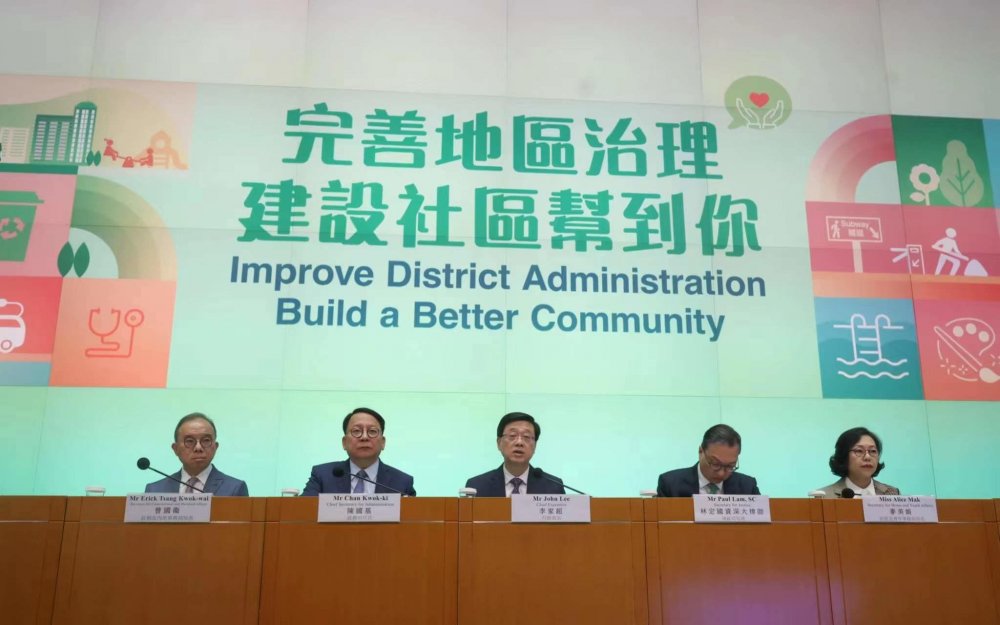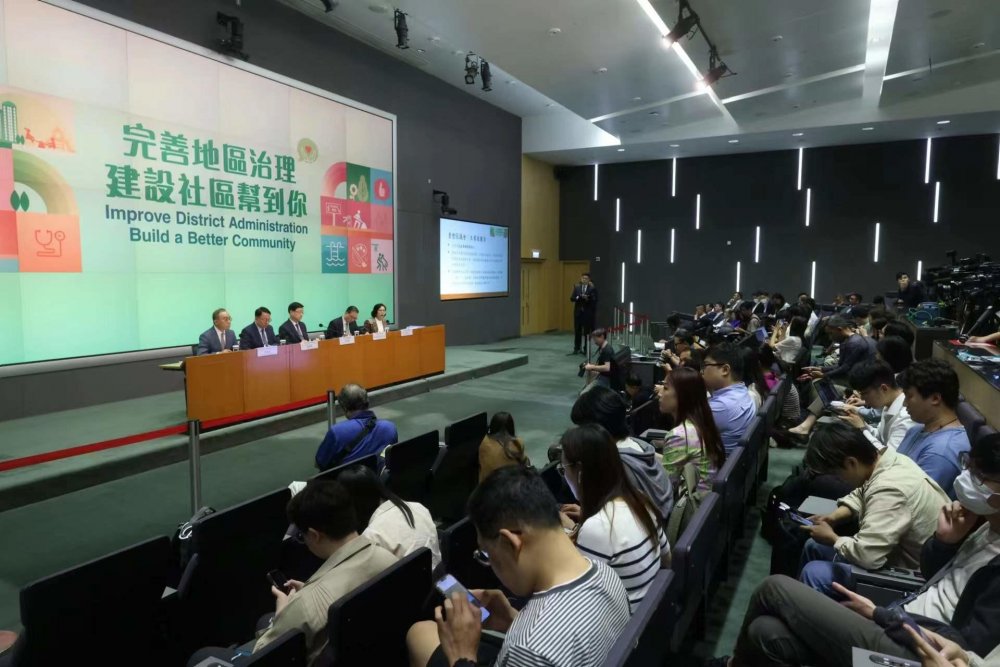
The Hong Kong Special Administrative Region government announced on Tuesday a detailed plan to reform the city’s district councils to safeguard national security, strengthen district administration and ensure that their governing power remains firmly in the hands of patriots.
The district councils will be formed through government appointment, indirect and direct elections and ex-officio membership, with all members being vetted by an eligibility committee to ensure they can perform the roles initially set for them, the government said.
The total number of seats after the reform will be 470, slightly down from the current 479 seats, to maintain district services.
Chief Executive John Lee Ka-chiu said the reform of the district councils was necessary due to the unacceptable situation that has arisen, with current-term district councils having only one-third of their incumbent members, the rest having either resigned or been disqualified
Aside from the 27 ex-officio members from the New Territories rural committees, members will either be appointed by the government or through indirect and direct elections at a ratio of 4:4:2 respectively.
In other words, 88 members will be returned by geographic polls. Another 176 seats will be filled by members of Area Committees, District Fight Crime Committees, and District Fire Safety Committees.
Announcing the details of the district administration overhaul on Tuesday, Chief Executive John Lee Ka-chiu said the reform of the district councils was necessary due to the unacceptable situation that has arisen, with current-term district councils having only one-third of their incumbent members, the rest having either resigned or been disqualified.
Many of those district council members failed to ensure the councils performed their roles as district advisory bodies, and instead engaged in activities that endangered national security by advocating separatism, condoning violence, and opposing the National Security Law for Hong Kong and the administration of SAR government, Lee said.
All new members will also need to be vetted by the Candidate Eligibility Review Committee, which is led by Chief Secretary for Administration Chan Kwok-ki, in a bid to safeguard national security and fully implement the principle of “patriots administering Hong Kong”, which are two of the three guiding principles for ironing out the reform. The remaining principle is to enhance executive-led district administration.
A sense of urgency has spurred the need to reform the district councils following the 2019 social unrest, which sounded the alarm for the city to close the loophole that previously allowed district councils to be used by anti-China troublemakers who turned them into platforms for advocating separatism and violence, Lee said.
District officers, the heads of each district office, will also assume the roles of chairmen of the district councils under the new arrangement, to enhance executive-led district administration and to better take the lead in mobilizing and coordinating district affairs.
District councils can also be remolded to take up supportive roles to help the government feel the pulse in district affairs, unite the people and garner the support of the public for the government.

The SAR government will also introduce a supervision mechanism to ensure that councilors perform their duties in due course. Councilors who fail to meet the public’s expectations will be subject to investigation and may face consequences.
The government will also enhance its district administration structure and leadership by establishing a committee headed by the chief secretary for administration.
In the meantime, the government will replace the Steering Committee on District Administration with another established task force led by the deputy chief secretary for administration to coordinate and supervise the different policy bureaus and departments involved in district administration.
Alice Mak Mei-kuen, secretary for home and youth affairs, said that under the reform, district councils have nine functions, including keeping in regular contact with residents to collect views from a wide range of sources, and providing district services such as consultations and referrals.
District councils should help the government keep abreast of the latest developments in their district and the needs of the community, so that the administration can plan district services more effectively and help to build community cohesion, she added.
Source:China Daily [2023-05-02]




